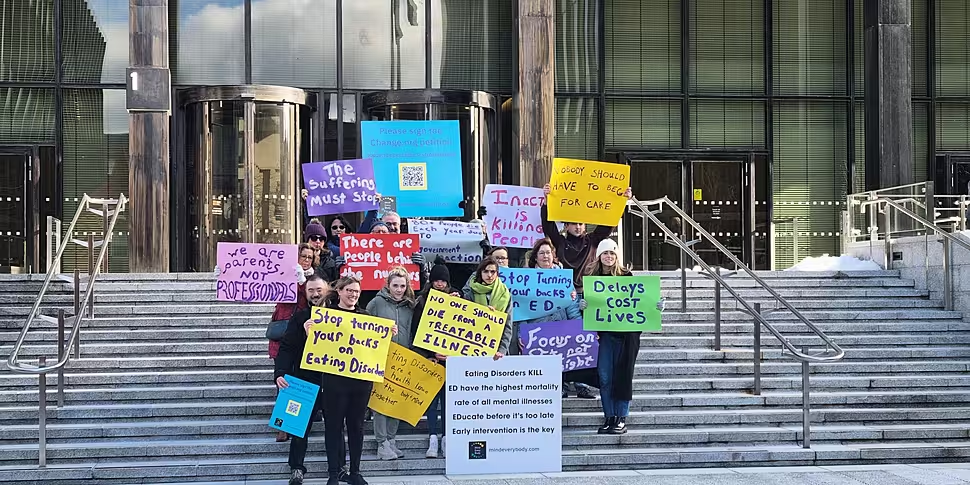Protests across Ireland today have demanded reform to the ‘understaffed, underfunded and underresourced’ eating disorder services in Ireland.
In Dublin, protestors marched to the Department of Health on Baggot Street Lower demanding a swift improvement in eating disorder treatment.
Protests are also happening in Limerick and Cork to coincide with Eating Disorder Awareness Week.
Organised by Mind Everybody, protestors have pointed out that eating disorders have the highest mortality rate of any mental illness, but services in Ireland are struggling due to a lack of funding.
Amy Hanley, whose teenage daughter was diagnosed with anorexia in 2022, said services in Ireland “just aren’t sufficient”.
“There's a huge disconnect in care between hospitals and home and children's services and adult services,” she said.
“It's underfunded, it's understaffed, it's under-resourced, so people aren't getting the appropriate care that they need.”
She also noted that out of the 16 specialist ED teams promised by 2023, only 11 are currently in place.
“There needs to be a new model of care and there needs to be a review to see how many beds are needed because there's very much disconnect there between the statistics and the reality,” she said.
Eating disorder services
A recent report by the Health Research Board found the number of child admissions for eating disorders more than doubled between 2018 (33) and 2022 (80), while the number of adults admitted to hospital was the highest in a decade.
Amanda Lynch has been battling with her eating disorder for 14 years, and she is demanding complete reform along with other protestors.
“Up until last year, there was no sort of service in the HSE within my catchment area," she said.
“I had to fight for HSE funding in the past to go to treatment because there were no beds available publicly from the HSE.”
Three beds
Ms Lynch said the past few years had been “really tough” as she dealt with her eating disorder until a service was finally established in North Dublin.
“It's good to have some support, but there's still no public eating disorder beds in the country,” she said.
Correcting herself, Ms Lynch added, “Well, there are three [beds], which are only accessible if you're already in St. Vincent's catchment area.
“Everywhere else in Ireland does not have a bed if you're an adult with an eating disorder.”
Protestors aim to raise awareness of issues facing those with eating disorders in public healthcare, such as the costs of multiple hospitalisations, treatment in private facilities, and the financial pressures on caregivers without sufficient State support.
The HSE estimates that up to 180,000 people in Ireland are affected by eating disorders, with up to 1,800 new cases occurring each year.
Reporting by Sheila Naughton









